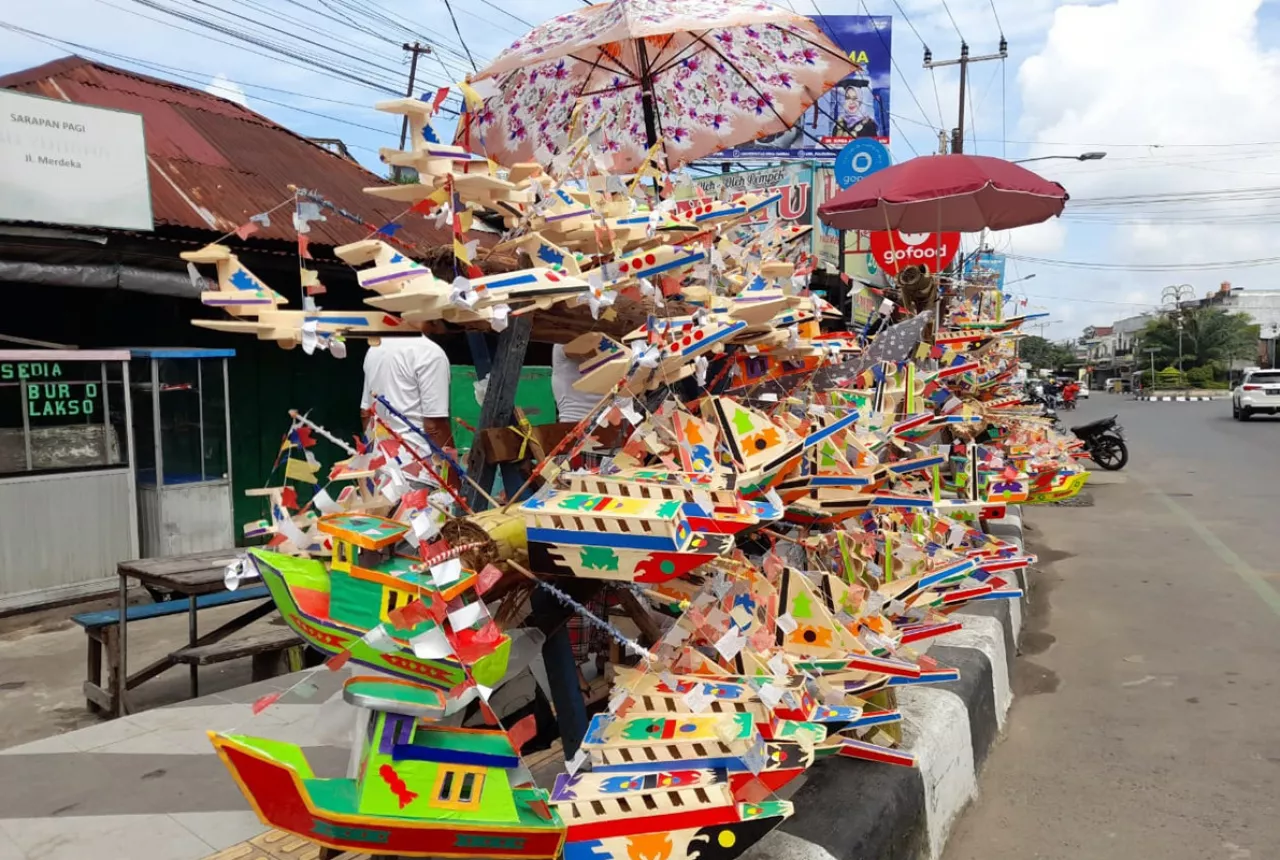Indonesia's unparalleled uniqueness shines through its mosaic of diverse cultures, thriving due to meticulous local preservation. This rich tapestry gives rise to a plethora of captivating traditions across the archipelago, spanning from holistic wellness practices to elaborate ceremonial revelries. In commemoration of Indonesia's revered Independence Day on August 17th, discover these enthralling customs, integral to the national holiday's celebration.
Telok Abang, Palembang
On the day of festivity's dawn, the vibrant streets of Palembang come alive with local vendors showcasing traditional handicrafts, notably the iconic "telok abang" or "red egg" creations. These eggs, brilliantly dyed in striking red hues, find artistic placement within miniature models of ships, airplanes, rickshaws, and trains.

This tradition, with its origins in Queen Wilhelmina's birthday celebration during the Dutch Colonial Era, has evolved post-independence. The red dye symbolizes courage, while the egg's pure white interior mirrors Indonesia's iconic Red and White Flag, symbolizing purity.
Jampana Parade, Bandung
The "Pawai Jampana" or Jampana Parade stands as a heartfelt expression of gratitude for the bountiful harvest and a poignant tribute to Indonesia's historic Independence Day in Bandung. A lively procession unfolds, featuring an array of large stretchers adorned with crops, indigenous crafts, and delectable local fare.

Carried by four individuals each, these stretchers become the focal point of friendly contests among parade participants and spectators, culminating in a communal feast that exudes joy and unity.
Torch Estafet, Semarang
Semarang, in Central Java, ushers in the exuberant "Obor Estafet" tradition, where the local populace, along with accomplished athletes, engages in a spirited torch relay race. This celebratory event honors the tenacious spirit of Indonesia's freedom fighters.

Spanning over three decades, this torch relay competition serves as a powerful embodiment of patriotic resilience in the face of daily struggles, inviting audiences to partake in this dynamic and spirited festivity.
Peresean, Lombok
Lombok Island, in its bid to honor Indonesia's Independence Day, hosts the annual Peresean competition, showcasing celebrated "pepadu" or gladiators who showcase their agility in a captivating display. Rooted in the traditions of the Sasak people in West Nusa Tenggara, Peresean brings together competitors from diverse corners of Lombok, wielding rattan rods and shields crafted from the hides of cows or buffaloes.

Beyond its intense competitive nature, Peresean imparts a profound moral lesson—a rite of passage, testing camaraderie and valor between two men. This engaging tradition has also captured the fascination of both domestic and international tourists visiting Lombok.
Rowing competition, Banjarmasin
In the heart of South Kalimantan, the vibrant city of Banjarmasin hosts the captivating "Lomba Dayung Perahu Naga" or Dragon Boat Rowing Competition. This annual spectacle unfolds on the enchanting Martapura River, tracing its origins back to 1924. Far from just an entertainment segment of the Independence Day celebrations, this event also doubles as a talent scouting platform for future rowing athletes.

While it began as a local endeavor, the competition's allure has attracted participants from neighboring provinces and beyond, signifying its enduring appeal and significance.



















